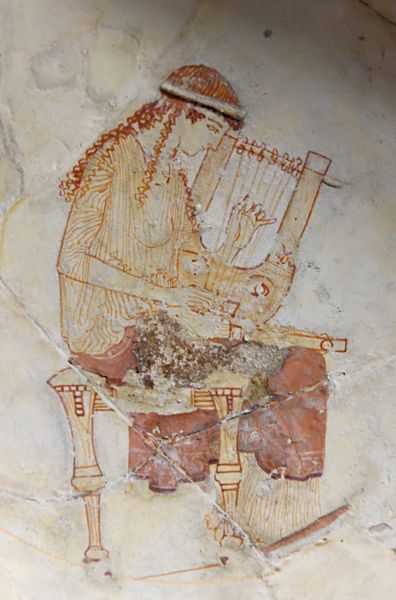The Grapevine Art & Soul Salon
Museum
In this issue of The Grapevine we honor the memories of Ivan Lester in whose name we established this museum, Charles McMichael, a longtime and dear friend, and Jerry Zeller, another friend whom many of us knew only a short time and whose eulogy appears in Presentations. May these words of Rilke help those of us who remain to let them live in us even as we let them go.

Of course it is odd to live no more on the earth,
to abandon customs you’ve just begun to get used to,
not to give meaning to roses and other such
promising things in terms of a human future,
to be held no more by hands that can never relax
for fear they will drop you, and even to put your name to one side
like a broken toy. Strange to wish wishes no longer.
Strange to see things that seemed to
belong together floating in every direction.
It’s very hard to be dead, and you try to make up for lost time
till slowly you start to get whiffs of eternity.
But the living are wrong in the sharp distinctions they make.
Angels, it seems, don’t always know if they’re moving among
the living or the dead. The drift of eternity drags all the ages of man
through both of those spheres, and its sound rises over them both.
Those who have died young finally need us no longer—you can be weaned
from things of this world as gently as a child outgrows its mother’s breast.
But we who have need of those huge mysteries, we who can sometimes
draw up from wellsprings of sadness rejoicing and progress,
How could we exist without them? Is the old tale pointless
that tells how music began in the midst of the mourning for Linos,
piercing the arid numbness and, in that stunned
space where an almost godlike youth
had suddenly stopped existing, made emptiness vibrate in ways
that thrill us, comfort us, help us now?
Rainer Maria Rilke, from Duino Elegies, I, The First Elegy. Trans. Richard Exner in Wolfgang Leppmann's Rilke: A Life. New York: Fromm International Publishing Corporation, 1984, 292-3.
Immortality? I believe that nothing that is real can pass away. But I believe that many people are not real. Many people and many things. But that is hard to say, and I would like to avoid stating that I share this or that opinion, because in every such finished view something conclusive lies,--whereas I nowhere feel myself concluded and finished, am rather nothing but change. I would like sometime to have an expression of my very own for all that and, as long as I cannot yet find it, to attach myself to no opinion but simply to be silent and say: I do not know.
Rilke, Letters, I, New York: W. W. Norton, 1934, p. 145.